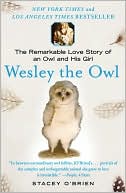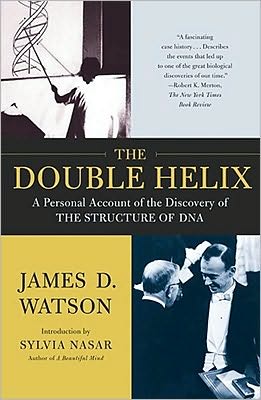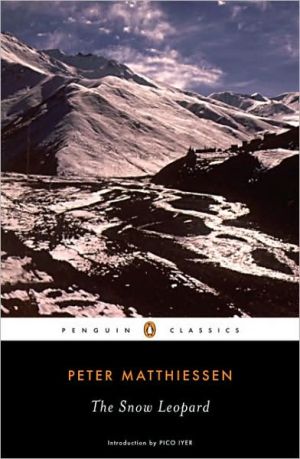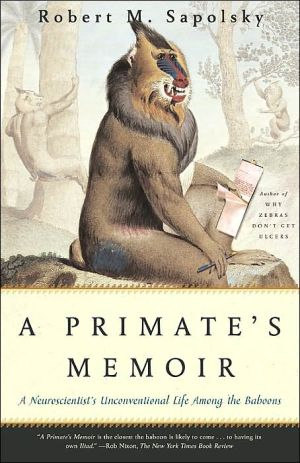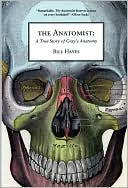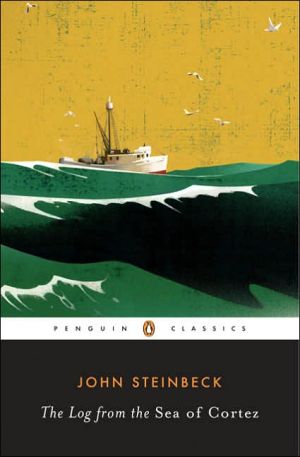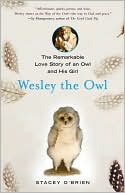Darwin's Armada: Four Voyages and the Battle for the Theory of Evolution
A group portrait of the three British voyagers who became fierce defenders of Darwin’s theory of evolution.\ Award-winning cultural historian Iain McCalman tells the stories of Charles Darwin and his most vocal supporters and colleagues: Joseph Hooker, Thomas Huxley, and Alfred Wallace. Beginning with the somber morning of April 26, 1882—the day of Darwin’s funeral—Darwin’s Armada steps back in time and recounts the lives and scientific discoveries of each of these explorers. The four amateur...
Search in google:
A group portrait of the three British voyagers who became fierce defenders of Darwin’s theory of evolution. The Barnes & Noble Review Ah, the Age of Sail: the tempests, the salty dogs, the derring-do. Befouled in the rigging of myth and nostalgia, the stories of the tall ships and the men who rounded the Horn in them are awash with the flotsam of parody and the jetsam of cliché. In an impressive feat of navigation, then, Iain McCalman renews the voyaging narrative in Darwin's Armada: Four Voyages and the Battle for the Theory of Evolution. He does so by reconceptualizing the sailing vessel not as a stage for Homeric exploits but as the 19th century's version of a postdoctoral fellowship. Recounting the ocean voyages of Charles Darwin and three of his closest associates -- botanist Joseph Hooker, fearsome defender of evolution Thomas Huxley, and Alfred Russel Wallace, co-discoverer of natural selection -- McCalman shows how important the sailing vessel was to the development of modern biology. For while it was the golden age of natural history, science had not settled into the academic, professionalized mode of its modern-day appearance. A cramped vessel filled with vermin and an ill-fed, resentful rabble would hardly seem the congenial setting for scientific discovery. But McCalman makes a convincing case that for Darwin and his future colleagues, a Royal Navy vessel under sail was "a type of college, with multidisciplinary knowledge available in an instant." Although the four men featured in Darwin's Armada emerged from radically different backgrounds, the circumstances of circumnavigation left them all "well-salted" -- tested to the limits of intellectual as well as physical enterprise and endurance, prepared for the scientific and cultural typhoon that their discoveries would stir. --Matthew Battles
Prologue: Darwin's Last Voyage 1Pt. 1 Charles Darwin and the Beagle, 1831-36The Prodigal Son 17The Philosopher at Sea 39Islands on His Mind 60Pt. 2 Joseph Hooker and the Ross Expedition, 1839-43The Puppet of Natural Selection 85The Travails of a Young Botanist 106Pilgrims and Pioneers 127Pt. 3 Thomas Huxley and the Voyage of the Rattlesnake, 1846-50Love and Jellyfish 151To Hell and Back 175Walking with Devils 197Pt. 4 Alfred Wallace in the Amazon and South-East Asia, 1848-66A Socialist in the Amazon 221The Law of the Jungle 245Boats, Birds and Peoples of Paradise 268Pt. 5 The Armada at War, 1859-82Taking Soundings 293S.O.S. 317Battle 339Epilogue: A Pension for a Captain 363Notes 374Bibliography 396Acknowledgements 403Index 406
\ Peter DizikesMcCalman has produced an accessible introduction to the lesser-known ocean voyages of Hooker and Huxley, while Wallace's incredible wanderings retain their ability to amaze.\ —The New York Times\ \ \ \ \ Publishers WeeklyIn delightful prose, University of Sydney historian McCalman tells the intertwined stories of Charles Darwin and three younger 19th-century explorers who came together to make the case for evolution and aid its relatively rapid acceptance around the world. The younger three were greatly influenced by Darwin's 1839 description of his travels on the Beagle and wanted to follow suit. McCalman devotes a section to the travels of each: Darwin on the Beagle; botanist Joseph Hooker's journeys around Australia and Antarctica; biologist Thomas Henry Huxley's excursions around Australia and New Guinea; and zoologist Alfred Russel Wallace's years in the Amazon and throughout Southeast Asia. Although there's little that hasn't been told previously, McCalman does a good job of detailing the hardships each suffered while also demonstrating the scientific growth each underwent and explaining how their shared experiences brought them together. Once Darwin published On the Origin of Species in 1859, the other three became his biggest and most public supporters, and their tireless efforts changed Darwin's reputation from being "the Devil's Disciple" to one of England's most respected scientists. 16 pages of color illus.; maps. (Aug. 17)Copyright © Reed Business Information, a division of Reed Elsevier Inc. All rights reserved.\ \ \ \ Kirkus ReviewsSparkling group portrait of the intrepid naturalists who challenged accepted notions about the creation of life and transformed science in the process. Darwin's first book, The Voyage of the Beagle (1839), inspired the other three aspiring young scientists to follow in his footsteps. Joseph Dalton Hooker, Thomas Henry Huxley and Alfred Russel Wallace traveled to the South Seas and explored the hinterlands of Asia, Australia and Africa, braving arduous voyages, shipwrecks and tropical disease to gain access to "the richest natural laboratories on the globe." McCalman (Humanities/Univ. of Sydney; The Last Alchemist: Count Cagliostro, Master of Magic in the Age of Reason, 2004, etc.) interweaves a vivid account of their early travels with a lucid depiction of the world-shaping collaboration-the metaphorical "Armada" of the title-that enabled the quartet to successfully take on the class-ridden scientific establishment of its day. Darwin, dubbed "the Admiral" by McCalman, was their unquestioned leader, but the three "captains" in his metaphorical fleet contributed significantly to the theory of natural selection by explaining apparent anomalies in the way that species in neighboring regions diverged. Each collected extensive samples of plant life, insects and animals during his travels. Preserved and sent back to England, these specimens ultimately provided documented evidence of the variation and similarities among species, narrowing down the number of accepted species (a hotly disputed issue at the time). This allowed them to show how variations within each new generation of a given species can lay the basis for the emergence of new species-existing species branch out from a commonancestor as they adapt to new niche environments-providing a crucial element in understanding how natural selection works. Working as a team, Darwin, Hooker, Huxley and Wallace revealed for all to see the "origin, distribution and diversity of life on the planet."An extraordinary true-adventure story, complete with trials, tribulations and moments of exultation.\ \ \ \ \ The New Yorker“McCalman evokes the physical hardships and social intricacies navigated by his heroes . . . and also the feel of an era when 'adventure and science went hand in hand.'”\ \ \ \ \ The New York Times Book Review“[McCalman's] narratives are as much bildungsroman as scientific analysis, showing how the four voyagers were steeled and transformed by the demands of the sea and the wondrous unfamiliarity of life on distant shores.”\ \ \ \ \ The Barnes & Noble ReviewAh, the Age of Sail: the tempests, the salty dogs, the derring-do. Befouled in the rigging of myth and nostalgia, the stories of the tall ships and the men who rounded the Horn in them are awash with the flotsam of parody and the jetsam of cliché. In an impressive feat of navigation, then, Iain McCalman renews the voyaging narrative in Darwin's Armada: Four Voyages and the Battle for the Theory of Evolution. He does so by reconceptualizing the sailing vessel not as a stage for Homeric exploits but as the 19th century's version of a postdoctoral fellowship. Recounting the ocean voyages of Charles Darwin and three of his closest associates -- botanist Joseph Hooker, fearsome defender of evolution Thomas Huxley, and Alfred Russel Wallace, co-discoverer of natural selection -- McCalman shows how important the sailing vessel was to the development of modern biology. For while it was the golden age of natural history, science had not settled into the academic, professionalized mode of its modern-day appearance. A cramped vessel filled with vermin and an ill-fed, resentful rabble would hardly seem the congenial setting for scientific discovery. But McCalman makes a convincing case that for Darwin and his future colleagues, a Royal Navy vessel under sail was "a type of college, with multidisciplinary knowledge available in an instant." Although the four men featured in Darwin's Armada emerged from radically different backgrounds, the circumstances of circumnavigation left them all "well-salted" -- tested to the limits of intellectual as well as physical enterprise and endurance, prepared for the scientific and cultural typhoon that their discoveries would stir. --Matthew Battles\ \

